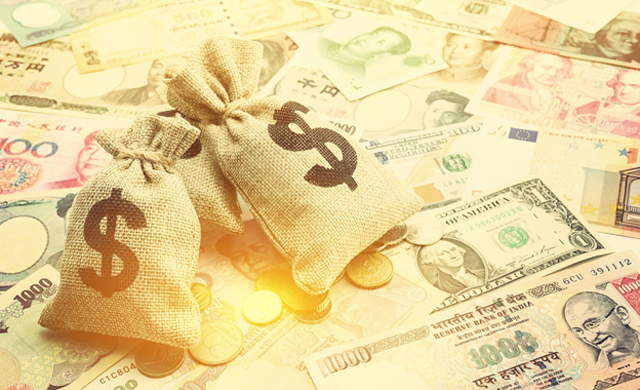We trade to make profits, and therefore we hate losses and like profits. However, when we put losses in proper perspective, we would see it as occasional blessings in disguise. Losses can be a good thing if they make you evolve into a better and more effective trader. You will then be able to trade with peace of mind, knowing full well that risk is under control and you will gradually move ahead regardless of any temporary setbacks (loss trades) along the way.

The notes below are taken from comments of Joe Ross’ clients, who are traders themselves. Joe Ross has been trading for more than 60 years, and he is the founder of Trading Educators, Inc.
Please read and get enlightened. May your pips be green!
WHAT EXPERIENCED TRADERS THINK ABOUT LOSS
“The reason they lose is due to sloppy trading habits. Traders lack discipline and self-control. That is what is so upsetting. We look at our trades and know we shouldn’t be in them, or we should be getting out, but we don’t. When we lose, we know we have only ourselves to blame. It’s as if the market is holding up a mirror of our trading behavior. I discovered by keeping a log of my trades and analyzing my losses, the majority of them come from my impulsive behavior and lack of self-control.”
“Overcoming oneself, impatience, greed, and insecurity are the biggest problems. That’s why, with almost every losing trade, it’s such a big deal. We end up saying to ourselves, ‘Oh no! Here I go again not sticking to my trading plan’ yet again! Our compulsive reactions are much like the smoker who can’t quit, or a dieter, who has that one last chocolate ……”
“Trading quietly, patiently, and detached would make most traders profitable, myself included. Thanks again for focusing on the real issues in trading.”
“What you wrote about losses, is an issue every trader has to come to terms with. I have an additional thought I’d like to pass on to those who might be interested. I know from doing some self-searching that what I discovered affects me.
“First of all, the money traded has a value; I worked hard for my money. Because I worked hard for them, they have a ‘sweat’ value, and a ‘time’ value. It might be only a USD 100 loss, but it has value. Secondly, and I’m not certain how best to explain this, but the risk of loss factor has an emotional component related to the results of previous trades.”
“My angle is slightly different from what Joe wrote, due to the inability to expect a profit. I mean that Joe and others trade with the knowledge they are right 60% or 80% or whatever it might be, so it is more easily possible for them to trade with positive expectations. Unless they’re screwing up their process, it is a numbers game, so make another trade. I’m not at that point of confidence which is perhaps necessary. I don’t know if the question was really asking for an answer, and I don’t offer my response as my excuse. The value in Joe’s writing is his providing evidence that there is possibly a more detached view separate from the specific outcome of any one trade, or even a small group of trades. I recall this discussion in one of his books. (Some trading things need constant reminding.) This perspective can assist with getting on with the next trade when it appears, with a better expectation that is not related to the previous trade’s result.”
How should you feel about losses? I once read somewhere that you are supposed to love losses. Does that make sense to you? It doesn’t to me.
The worst aspect of losing is that it tends to create pessimism. Traders should feel bad when they lose only if they fought the market trend, or violated their own trading strategies. The best traders have a healthy ‘so what, big deal!’ attitude that maintains a sense of humor about losses. There is no reason to feel bad about losses if the trading discipline was correctly used. On the other hand, there is no reason to learn to love them either.”
“Analyze losses, learn from them, and then let them go; move on, that’s the best thing to do.
Understanding man’s relationship to time is one of life’s most important challenges. When man becomes free of time’s constraints, he lives life to the fullest and achieves goals on his own terms. Pessimism traps traders in the past, destroys their present, and robs them of the future. Imagine a world without time where the thought of death is not a finality of existence. If profits were not the reason for your work-related behavior, then who are you? Where are you and what are you doing? Who shares this existence with you? In the philosophical sense, man creates himself and his existence when he takes responsibility for his actions and his time. Think how various individuals create order, structure and discipline in their lives. How will you allow a trading loss today affect your life five years from today?
Thinking the wrong way can become self-fulfilling. The trouble with self-fulfillment is that many people have a self-destructive streak. Accident-prone drivers keep destroying their cars, and self-destructive traders keep destroying their accounts. Markets offer unlimited opportunities for self-sabotage, as well as for self-fulfillment. Acting out your internal conflicts in the marketplace is a very expensive proposition. Traders who are not at peace with themselves often try to fulfill their contradictory wishes in the market. If you do not know where you are going, you will wind up somewhere you never wanted to be.
Every business has losses. I cannot think of any that don’t. Shoplifting, embezzlement, internal pilferage, lawsuits, bad debts, spoilage, etc., I’m sure you can think of even more. You name it and businesses have one or more of the many ways to experience losses. Most businesses expect and accept such losses as part of doing business. Why, then, is it such a big deal when you have a loss in trading? If you know the answer to that, please let me know.
The way I handle a loss is this: I examine it, make every attempt to learn from it, and ascertain whether I had the loss by straying from my trading plan. If I have strayed, I reinforce my resolve to stick with my plan. If I have not strayed, then I learn from it what I can, and shrug it off as a cost of business. It is not an expense, it is a cost, and if you don’t know the difference, you need to take a course or read a book on the basics of accounting.”
Source: https://learn2.trade/is-there-anything-good-about-loss


 Hot Features
Hot Features











